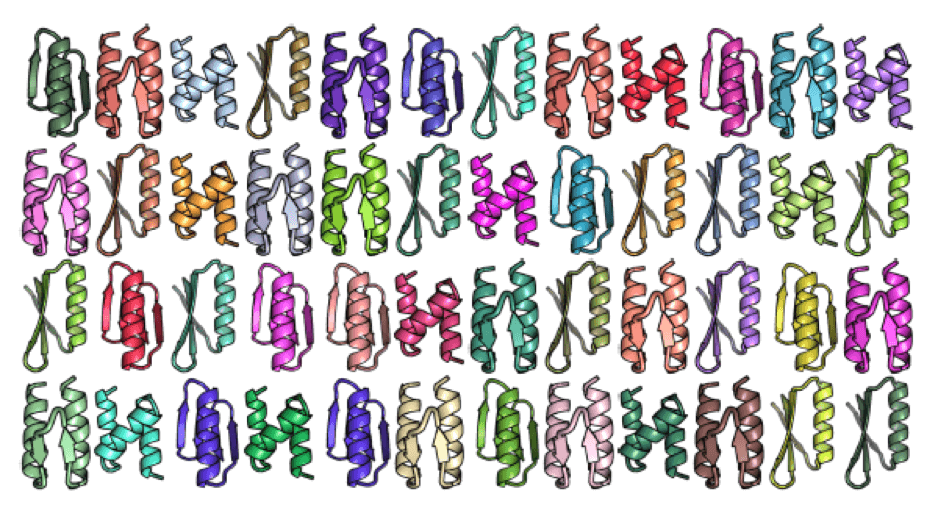Designing Proteins to Improve the World

THE BAKER LAB AT THE UNIVERSITY OF WASHINGTON
The potential of de novo protein design has drawn the attention of the scientific community for many years. Protein designers can now create entirely new protein folds from scratch, with new or enhanced functions that are not seen in nature. These designer proteins could be used to catalyze chemical reactions, or act as more effective therapeutics and vaccines.
The Baker Lab, part of the Institute for Protein Design at the University of Washington, is a pioneer in this field. En lugar de diseñar una secuencia de proteínas existente, el laboratorio se centra en el diseño de proteínas completamente nuevas para abordar los desafíos en salud y tecnología. Led by David Baker, principal investigator of Baker Lab and director of the Institute for Protein Design at the University of Washington, the lab has registered a series of achievements, including an experimental RSV vaccine, the development of anti-cancer proteins with fewer side effects, and new enzymes that help microbes convert carbon dioxide into useful chemicals. Recently, Baker Lab received a $45 million grant from the Audacious Project, a funding consortium, to pursue several computational design projects, including a flu vaccine capable of providing lifetime immunization, advanced protein containers for targeted gene delivery, and smart proteins capable of identifying cancerous or otherwise unhealthy cells.
Read the rest of the case study here.
¿Qué piensa?
Me gusta
No me gusta
Me encanta
Me asombra
Me interesa
